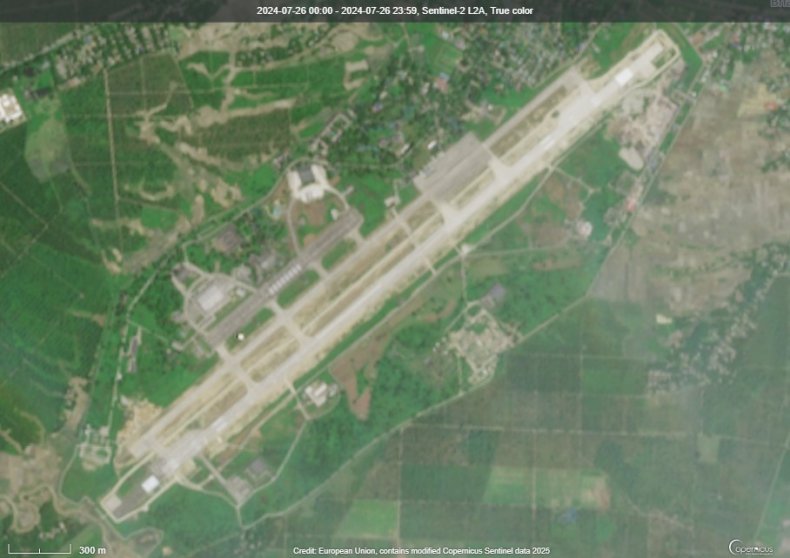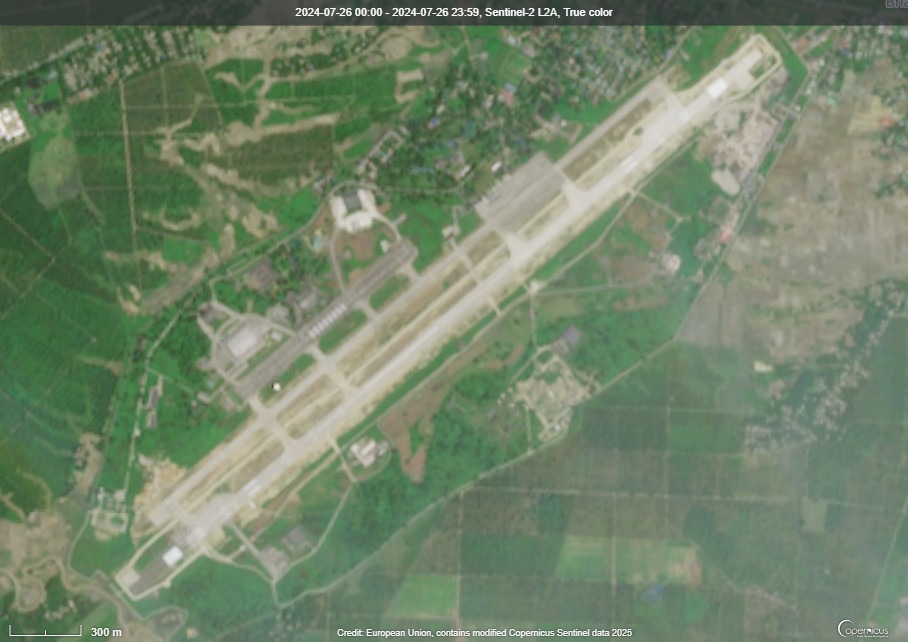Recent satellite imagery revealed major infrastructure upgrades in the Chabua Air Force Station, a key forward base near India’s eastern frontier with China in the contested Arunachal Pradesh region.
Newsweek has reached out to Indian and Chinese defense ministries for comment.
Why It Matters
The recent enhancements at Chabua reflect India’s broader strategy to counter China’s expanding military footprint along the Himalayan frontier. The airbase is located near the Line of Actual Control (LAC) — a 2,100-mile disputed border that has been the focus of sustained military tension since the deadly clashes in 2020.
China criticized a previous visit by Indian Prime Minister Narendra Modi to Arunachal Pradesh, with China’s foreign ministry described the boundary issue as “complicated,” underscoring ongoing friction between the two sides.
Drag slider
compare photos

What To Know
A new satellite image shared by open-source intelligence analyst Damien Symon on X showed the Chabua air base in the state of Assam, pointing to sites of hardened aircraft shelters (NGHAS) and enhanced runway infrastructure—designed to shield combat jets and support rapid deployment near the contested India‑China border.
Chabua Airbase, a critical Indian Air Force facility near the China border is being upgraded, recent imagery reveals rapid development activity in 2025 with multiple new hardened aircraft shelters now taking shape on site pic.twitter.com/0nm3snKu7v
— Damien Symon (@detresfa_) July 21, 2025
China and India have been in a tense military stand-off with thousands of military personnel deployed along the Line of Actual Control, the de facto boundary that divides the two Asian superpowers. India has deployed portable air defenses and China’s major upgrades include at Hotan Air Base in Xinjiang.
In June 2020, a violent skirmish on part of the disputed border left at least 20 Indian and four Chinese soldiers dead. They had fought with sticks and stones.
In 1962, China and India fought a bloody war over the question of control over Arunachal Pradesh. Since then, New Delhi has maintained control of the region, which is now part of India despite Beijing’s continuing territorial claims over the region it refers to as “South Tibet.”
In May, India rejected China’s renaming of more than a dozen places in Arunachal Pradesh. Tensions have also recently increased with India accusing China of supporting Pakistan in the contested Kashmir region during a four-day conflict between the two countries in May.
However, India and China held a rare meeting on the sidelines of the Shanghai Cooperation Organization, where officials discussed ways to reduce tensions. Officials say they aim to advance stable ties by building on the momentum of a October 2024 meeting between President Xi Jinping and Modi at the BRICS Summit in Russia.
What People Are Saying
India’s foreign ministry spokesperson Randhir Jaiswal said in May, according to Reuters: “Creative naming will not alter the undeniable reality that Arunachal Pradesh was, is, and will always remain an integral and inalienable part of India.”
China’s Foreign Ministry spokesperson Mao Ning said in June: “The boundary question is complicated, and it takes time to settle it. The two countries have already established mechanisms at various levels for communication. We hope that India will work with China in the same direction, continue to stay in communication on relevant issue and jointly keep the border areas peaceful and tranquil.”
What Happens Next
India and China are continuing diplomatic and military talks through established mechanisms. There is constant risk of a flare-up.
Read the full article here


